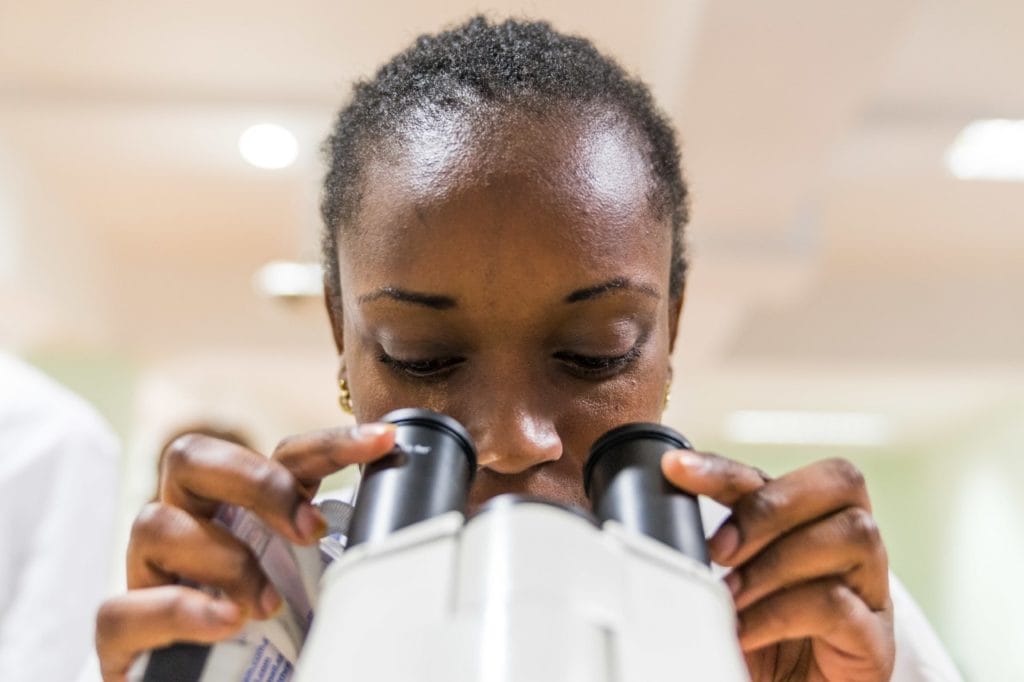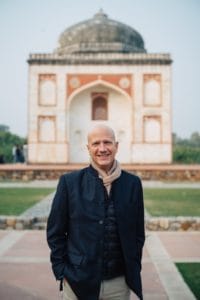‘The virus knows no borders; neither should our response’

Matt Reed (PhD, History, ’02) is quick to point out that he’s not a hero, but there’s no doubt that the Aga Khan Development Network, where he is a senior executive, is doing heavy lifting to improve living conditions among the most disenfranchised in Central and South Asia, Eastern Africa, Syria, and Egypt.
“I have the great privilege to work for an organization with the raison d’être of assisting those most in need,” said Reed, who is global director of institutional partnerships for the Aga Khan Foundation and CEO of its United Kingdom office. “My job—every day of the year, everywhere we work—is to help the agencies of the Aga Khan Development Network improve the quality of life in all its dimensions, promote pluralism, and enhance civil society.”

From his London flat, where he and his family were still on lockdown in mid-April, Reed described in a telephone interview the daily challenges that the network faces, which have been compounded deeply by the spread of COVID-19 in communities that struggle daily even without a worldwide public health crisis.
Reed has been working closely with institutional partners—including governments, multilateral institutions, foundations, and corporations—to bring aid where it is needed most. In a matter of weeks, he has worked with other senior leaders to help shepherd the network’s 10 development agencies, tens of thousands of staff, some 50,000 community organizations, hundreds of bank branches, and more than 750 healthcare facilities toward an integrated response.
He is in awe of the work done by those on the front lines.
“It demands focus, sacrifice, and hard work from hundreds of colleagues in each country,” Reed said. “They are nurses and doctors testing and treating COVID cases. Or community health workers in thousands of villages contacting families and local groups to inform them about the virus, how to avoid it, and how to handle someone showing symptoms. Or local community organizations anticipating interruptions to food supplies and preparing for emergency response. Those are the real heroes of this crisis. I am proud that I can help them.”
Going it alone in an uncoordinated way, Reed said, has “exacerbated the global challenge and magnified it significantly everywhere.”
Reed credits his experience at CGU in bringing a breadth of perspective and analytical rigor while working under intellectual pressure and time constraints.
“That discipline helped me develop mental stamina, emotional awareness, and working habits that I have found myself drawing on throughout this crisis,” he said. “Working with scholars like Michael Roth, Robert Nye, and Margaret Waller—and so many others—through the European Studies program also instilled an openness to ideas, an intellectual curiosity, and a constructive approach to problem-solving that are, I hope, helping me be more creative in thinking through our challenges, more adept at seeing opportunities to intervene and make a difference, and more resilient as the situation worsens around us.”
Though he understands the need of individual nations to address the pandemic at home first, especially when people are dying and livelihoods are destroyed, he says the nature of the COVID-19 crisis shows why the international community must work together to stem the spread of the virus and its consequences.
“Going it alone in an uncoordinated way has exacerbated the global challenge and magnified it significantly everywhere,” Reed said. “That should be a lesson to the global community as the first wave of this crisis hits in much of the developing world. The more the virus spreads, the more likely we all are to face devastating second or third waves, or more, in the industrialized world. It is in all our interests to provide financing, equipment, and expertise to the developing world during this crisis.”
“The virus knows no borders,” he added, “neither should our response.”